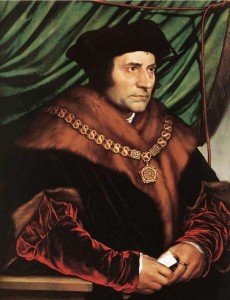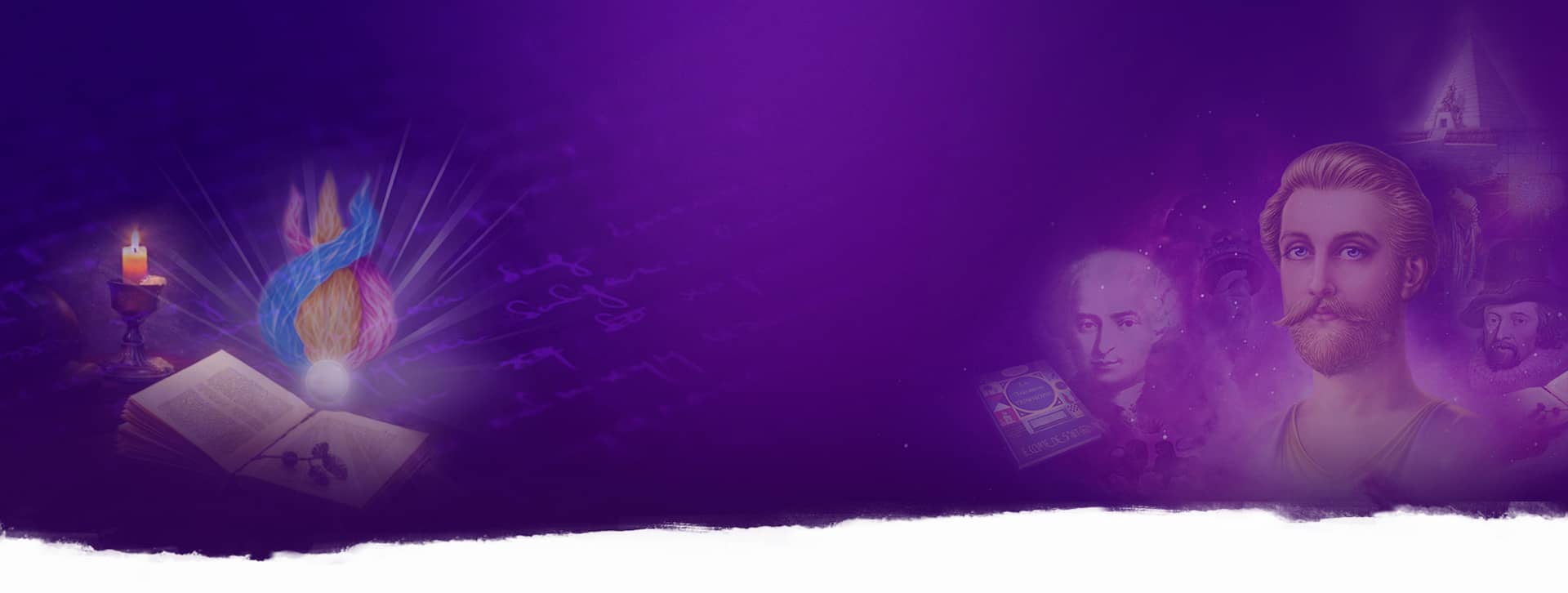El Morya as Sir Thomas More, (1478-1535) Lord Chancellor of England, died a martyr in defense of religious principle.
His father, a prominent lawyer and judge, provided him with an excellent education. At eighteen, Thomas More left Oxford with a thorough knowledge of the classics and devoted himself to the study of law.
Young Thomas became a close friend of the eminent Dutch humanist Erasmus. In London he grew in favor with King Henry VIII, who employed him in missions abroad. Also pursuing his literary interests, More was acclaimed as the first writer of elegance in English prose for his Life of Richard III, a precise historical document which Shakespeare followed in literal detail.
More's deep devotion to God caused him at one time to consider a religious vocation and to practice extraordinary austerities for over four years to test his own self-discipline. He decided to marry, however, and his wife and four children proved to be his greatest joy and his sole comfort in days to come. Their famed estate at Chelsea housed Thomas' entire family, including eleven grandchildren.
Over the years, More's “little Utopia,” as he often called it, became a center of learning and culture, likened by Erasmus to “Plato's academie.” It was a home of good will to which came the most learned men of the day, even the king himself, for counsel and for comfort. At Chelsea, More wrote the famous work entitled Utopia, a witty exposé of the superficiality of English life and the flagrant vices of English law.
Thomas More and Henry VIII
In 1529, Sir Thomas More was appointed by Henry VIII Lord Chancellor of England.
Of him Erasmus wrote: “In serious matters no man's advice is more prized, while if the king wishes to recreate himself, no man's conversation is gayer. Often there are deep and intricate matters that demand a grave and prudent judge. More unravels them in such a way that he satisfies both sides.”
In spite of many honors and achievements, More sought no man's esteem. He remained sensitive to the needs of the common people by daily walking the back streets of London to inquire into the lives of the poor. And even as Lord Chancellor, it was his daily custom to enter the court of judges at Westminster Hall where his father sat, to kneel, and to ask his blessing.
More devoted himself to his duties with utmost zeal until Henry, desirous of a son, an heir to the throne, declared his childless marriage to Catherine of Aragon null and announced his intent to marry Anne Boleyn. Because the divorce was directly opposed to the laws of the Church, More refused to support the king's decision. Charged and convicted of high treason, Thomas More was beheaded on Tower Hill in 1535. Kneeling before the executioner, he said, “I die the king's loyal subject, but God's first.”
He was canonized Saint Thomas More in 1935. The motion picture based on the play by Robert Bolt, A Man For All Seasons, is the story of the life of Sir Thomas More.
The final embodiment of the Master Morya was in India in the latter part of the nineteenth century, the beloved master was born a Rajput prince and later became a monk frequenting the retreats of the Himalayas and drawing disciples into the light by his devotion to the will of God, to the World Mother, and to the perfection of the Diamond-Shining Mind of God. Working closely with Kuthumi and Djwal Kul, he attempted to acquaint the West with the reality of the invisible world and with the workings of the law and hierarchy through the Theosophical movement and selected chelas in various parts of the world.
Since his ascension in about 1898, El Morya has served tirelessly with Saint Germain in the cause of world and individual freedom. He is devoted to the Order of the Diamond Heart, one of the functions of his etheric retreat over Darjeeling, India, where he trains public servants to externalize the will of God through God-government on earth.
To further communication between ascended and unascended man, he trained Mark and Elizabeth Clare Prophet to be messengers for the hierarchy in the great hope that through the spreading abroad of the true teachings of the Christ as he and other masters of the Brotherhood would dictate them, the long-awaited golden age might appear.
 Free ePearls by El Morya
Free ePearls by El Morya
The Ascended Master El Morya wrote a series of intensely personal messages to those who would be his students. Written somewhat in the tradition of the Zen masters of the East, they contains keys that we all need to meet the challenges of the spiritual path in a modern world.
Originally published as print Pearls of Wisdom®, they are now available by email as PDFs. Subscribe for your free 16-week Introductory series.



Sorry, comments are closed for this post.